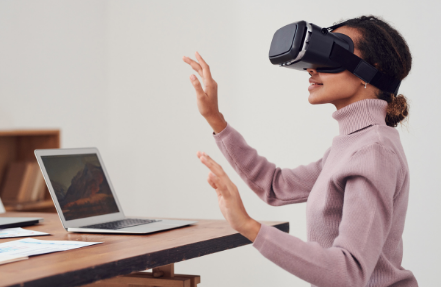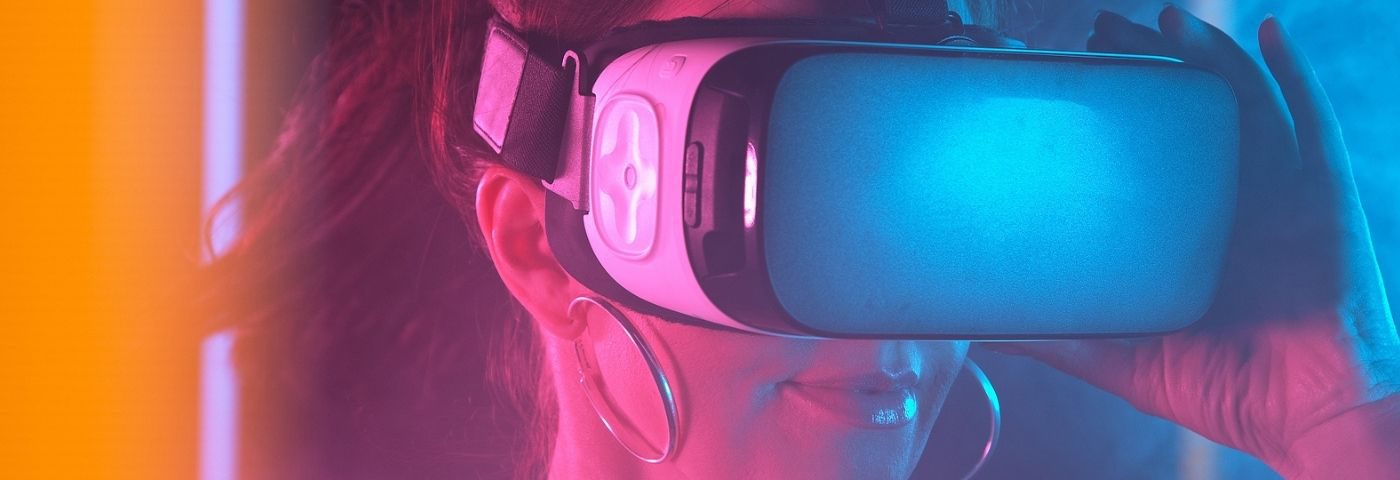In May 2021, Microsoft CEO Satya Nadella called the convergence of the virtual and physical worlds the metaverse, now one of the most exciting trends. It seeks total digital immersion through a universe connected to the internet. In the metaverse, including Beautyverse, consumers can have different experiences that are driven by the virtual economy and current financial principles.
In this universe that can be multidimensional and supported by third-dimensional technology, augmented reality and virtual reality, people can meet to participate in different games, attend events, access information, acquire goods or work.
Many companies in almost all sectors are betting on this new reality. A recent publication on the Marketing Directo Portal indicates that the meta-universe has three components: the speed at which technology changes, modifications in social behaviour, and trends related to this world. A 2021 publication on the website Emergen Research indicates that the global metaverse market in 2020 was USD 47.69 trillion, with a projected CAGR of 43.3% for 2028 and an estimated value of USD 828.95 trillion.
Beautyverse = Beauty + Metaverse
The beauty industry is no stranger to this reality and faced with such a market opportunity, we are seeing very interesting new trends that will undoubtedly drive innovation in the coming years in the fascinating world of the metaverse.
Covid & Metaverse
The pandemic has been an accelerator of this trend. Due to the fact that many of us are working remotely and students are virtually immersed, the need arose to make online interaction more realistic. The covid has accelerated the development of virtual communities and mixed reality.
Sonde mental fitness
In October 2021, digital mental health company Sonde Health announced the launch of “Sonde Mental Fitness,” which uses biometric voice data to assess a user’s mental well-being.
The new tool works with audio signal processing technology and machine learning algorithms that after analysing the vocal characteristics of users for 30 seconds can detect fluctuations in their mental states.
NFT

In November 2021, a post in Vogue Business presents a very interesting picture of where beauty is headed in the metaverse, as consumers are starting to embrace it in different ways. For example, several people already experience augmented reality when selecting and buying a product; while others more experienced may be ready to buy an NFT from a beauty brand.
In this regard, the BBC explains that NFT corresponds to the acronym of a non-fungible token, known as a digital token or digital voucher. In economics, a fungible asset is something with units that can be easily exchanged, such as money. NFTs are an “inimitable” asset in the digital world that can be bought and sold like any other type of property, but they have no tangible form. NFT is a term that is becoming trendy in cosmetics.
In October, Clinique created its first NTF and in this regard, the company indicates that the goal is to modernize the experiences of its consumers and establish a new presence in the metaverse.
Cosmetic videogames
The portal Vogue Business also talks about a finding that is very interesting and that represents an opportunity that is definitely not explored by the cosmetic industry. Games are much more common than we think, especially among women. In fact, the article points out that it is a mistake to think that only teenagers and young men play video games.
It also mentions that, in 2021, 53% of beauty fans played or downloaded a free game. In the market, we are already seeing hybrid interactions between fragrances, skincare and makeup products, initially in the prestige category with online and virtual games, where users have the opportunity to learn about the brands and the benefits of the products.
Without a doubt, this is a great strategy that will help the positioning of companies. For example, Drest is a mobile gaming application in which users have to compete in style-related challenges. The applications of Paco Rabanne’s Phantom perfume are another great example of this trend.
Virtual dermatology stores
The first store of this type for a prestigious brand (Virtual Lancer Dermatology Shop) was recently launched in the United States, where users can interact with an avatar dermatologist of Dr. Lancer, take questionnaires, receive recommendations, watch educational videos and participate in specific events.
Metaverse nails

This is a new concept of portable nail holograms. The company indicates that it is the only product in the world that allows you to adorn your digital and physical self with customizable holograms.
The brand has collectible fashion accessories that interact with a 3D social app that activates a diverse range of holograms that can be captured and shared in real time on social media.
Metaverse inspiration
Glamour magazine published an interesting piece in November on the metaverse of beauty, featuring related trends like surreal colours, ethereal skin, and futuristic textures.
- Meta Skin: Futuristic and otherworldly, the skin enters a new era of holographic sparkles and iridescent colours
- Digital lavender: Iridescent lavender shades are going to be a big trend in the coming months
- Loaded lashes: due to the use of masks, the eyes have been protagonists in these almost two years of pandemic and will continue to be. Eyelashes are coming up as the next focus of attention, and we’re seeing very eye-catching and extravagant colours, finishes and textures
- Metallips: the new lip trend includes opulent finishes, metallic textures and majestic shades.
The Walmart joy
In October 2021, this brand launched a campaign that thanks to facial recognition technology can detect the types of gifts that people find pleasant, when they smile. This trend will come to cosmetics, and we will see how companies will be able to detect consumer smiles by trying different textures and aromas.
Then, analysing the smile of people when they experience cosmetic products will be the next target to validate the efficacy and preference of users.
Metaverse beauty shops
Beauty brands are creating different and disruptive shopping experiences through digitization and virtuality. There are beauty brands that have created the option to buy with friends and in a group so that people can meet, chat in real time and navigate through the metaverse.
AR Packaging
The new packaging includes easily accessible QR codes that provide interactive experiences in augmented reality so that brands can improve the amount of information that is normally included in a product, making the user experience more interesting.
Gaming and fashion

A recent Vogue post says that if the first fashion capital was Paris and the second New York, the current one is Instagram. Gaming has been fuelled by the pandemic due to the inability to create physical experiences.
In the market we are seeing a very interesting union between games and fashion, some examples that the article cites are Louis Vuitton with League of Legends, Moschino with The Sims, and Jacobs with Animal Crossing, among others.
This month, Zara announced the launch of its first real and virtual fashion and accessories collection on Metaverso with the brand Ader Error. In the coming months, we will see new concepts where cosmetics begin to interact in other territories such as games and fun.
Cosmetic avatars
On the Internet, and other modern communication technologies, an avatar is called a graphic representation that is associated with a particular user for identification in a video game, Internet forum, etc. The beauty industry is innovating thanks to the inclusion of avatars in very interesting concepts.
Prada recently relaunched one of its fragrances in a marketing campaign featuring a virtual avatar who allows interaction with the perfume in a variety of content, including videos and photo sessions.
The implications of the metaverse
An interesting November post from Technology Review talks about the challenges metaverse faces as the new environment will require avatars to represent us virtually.
This new reality can increase self-image and mental health problems, while it can also reduce diversity and foster idealized stereotypes. The personality of the new consumers will be shaped by the simultaneous experiences of the real and virtual world. Without a doubt, cosmetic companies must generate strategies that meet new challenges.
Beautyverse
The boundaries between the real and the virtual are beginning to fade… Is the cosmetic industry ready? I invite you to submit your opinions and comments on the trends, opportunities and realities that the metaverse represents for our industry.
Welcome to the discussion! At in-Cosmetics Connect we want to hear your comments!
Would you like to stay on top of other industry trends? Then follow the latest articles:
New trends in men’s grooming: the opportunities emerging in the sector

